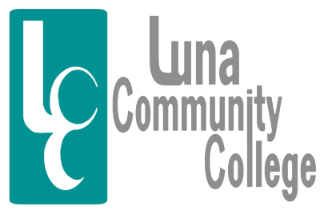News
KOB’s Ramirez talks news, both real and ‘fake’
Reporter shares insights with Luna students
The concept of “fake news,” the importance of true journalism and the modern state of politics were among the subjects discussed by KOB-TV investigative reporter Chris Ramirez and students in Rick Baca’s Critical Thinking class at Luna Community College on Oct. 29.
Ramirez, whose broadcast reporting career has included stints at both KOB and KOAT, took time from the hectic schedule covering the home stretch of one of the most significant general elections in recent history to share his insights with the Luna students. Ramirez spent the better part of an hour discussing his work and answering questions from students.
Perhaps spurred on by political figures, many in the general public have targeted those in the media, with the term “fake news” increasingly used as a label. Ramirez said that way of thinking is flawed but has motivated him to be more scrupulous than ever in gathering and reporting news.
“How would you define ‘fake news’? The definition I use is information coming from unverified, discredited sources,” he said, citing Russia’s reported misinformation campaign in the 2016 election as an example. The label, however, has become misused, he said. “When people don’t like what I have to say (or if) it doesn’t align with your political beliefs, it automatically gets cast as fake news. That is problematic … people would rather believe something that confirms their political bias. That’s a really dangerous place to be. There’s a huge segment of our population that reject facts because it doesn’t align with (their) belief system. I feel like I have to go above and beyond to prove (the reporting is accurate). I as a journalist am working so much harder than before to make sure what I put on television is verified, fact-driven, data-driven.”
The same cannot be said, Ramirez noted, for the world of social media, from which many derive information treated as news irrespective of its credibility.
“I like that this is a class about critical thinking,” Ramirez said, addressing the Luna students directly. “I think it’s more important than ever to become critical thinkers … to question things around you and (not give in to) assumptions. I’m excited to see Luna has a course like this … honing those critical thinking skills and sharpening those minds. You are the next generation of leaders.”
Ramirez encouraged students to “keep thinking critically, be curious, and keep asking questions,” especially of public officials: “They serve you,” he said, “not the other way around.”
Ramirez also touched on the state of modern politics: “We are the most polarized that we’ve ever been,” he said. “Tribal politics has made our country really divisive. There’s not a lot of meeting in the middle. It’s either the Democrat way or the Republican way … I think they’re both really guilty of playing into tribalism. (Working together) is just not something we’re seeing enough.”
One of the primary strengths of New Mexico is the warmth of its people, said Ramirez, an El Paso native who moved around plenty as the son of an Air Force veteran. After returning to the Southwest to attend New Mexico State in Las Cruces, he took a reporting job in South Carolina. But he made his way back to New Mexico, he said, because “I wanted to work hard for a community I could relate to.”
“This kind of work in New Mexico has been really rewarding,” he said. “To see actual change happen because of something we’ve exposed – that’s the kind of work I live for.”
Ramirez said he first got into journalism in part because of multiple influences as a child – his parents watching the news and subscribing to newspapers – and his own natural curiosity. “I wanted to know more. I was a kid of the ‘90s. I would go to the library to read encyclopedia articles. I wanted to know about things. This was before Google existed where you could just type it in. If you have a natural curiosity, journalism could be a career that fits you.”
In response to one student question, Ramirez said working for a media outlet that covers a geographically large state with limited resources presents a challenge. “We have really frank and critical thinking discussions about where to put our resources,” he said. “It is expensive. (So we look for subjects with) widespread appeal, things worth our efforts so we can be a catalyst for change.”
In spite of what some media consumers may suggest to the contrary, Ramirez said he’s encountered a lot of positive feedback in Las Vegas and other communities. “Every community I go to, it’s warm. People are warm. People are excited that I’m there to cover the news … Every time I go to Las Vegas, people thank me for going there … You want your community to do better, and usually the first step is to shine a light on a problem.”
Course instructor Rick Baca’s approach to teaching, particularly in the HD 260 Critical Thinking course, favors bringing in special guest speakers – like Ramirez –from various professional fields. For more information on the Luna Humanities Department and other academic and vocational opportunities available at the college, please visit luna.edu.
